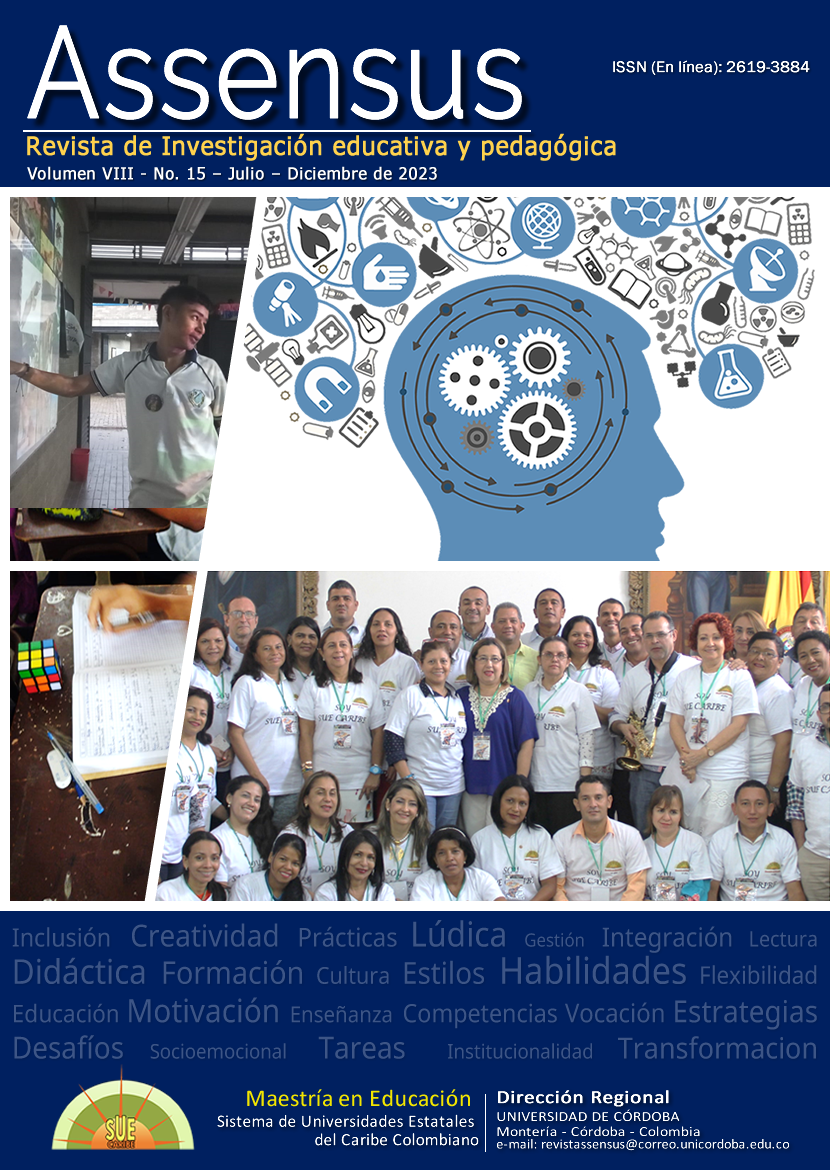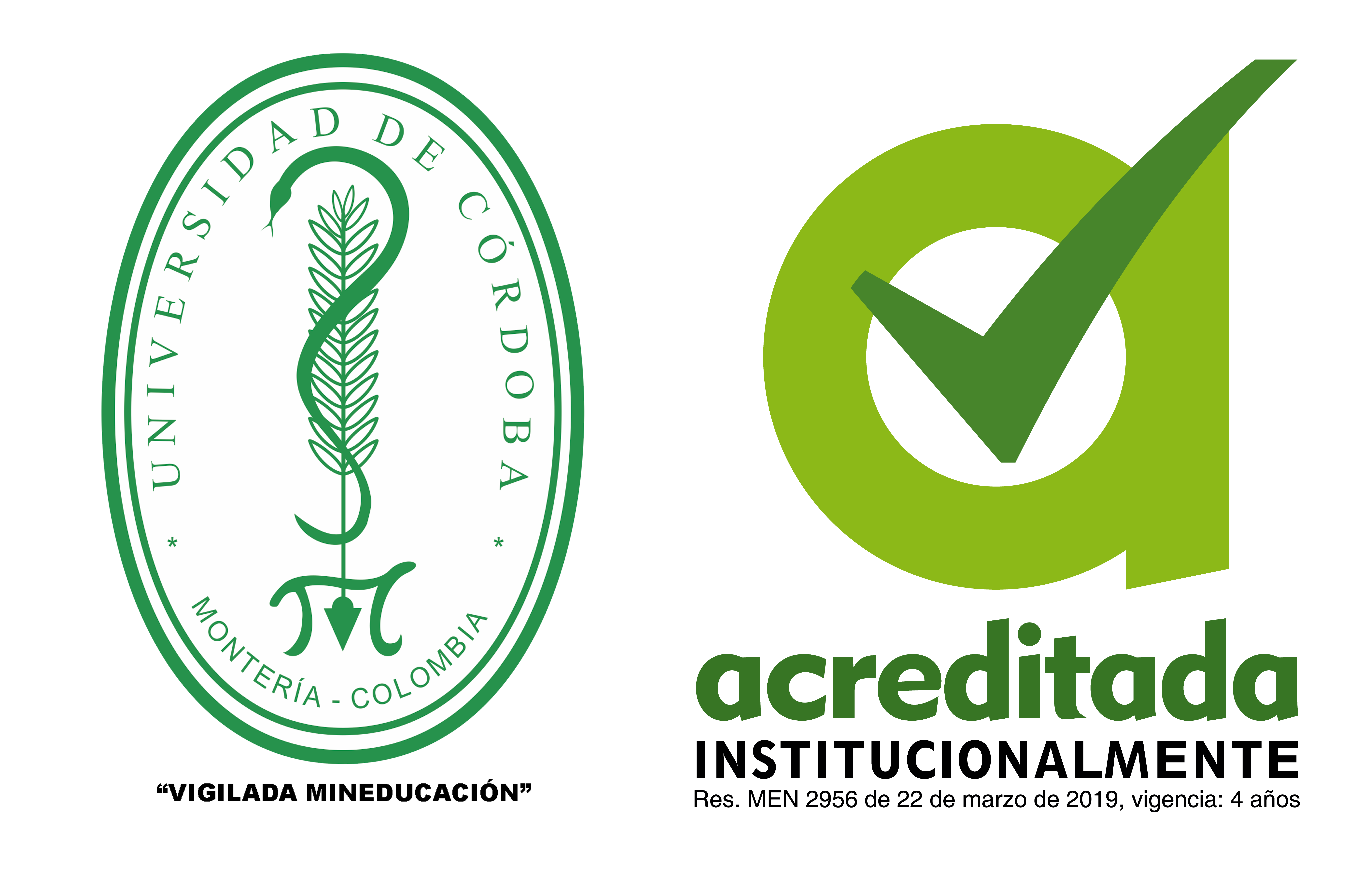The Playfull adapted for children with learning difficulties in the Departmental Educational Institution Escuela Normal Superior de Junín.
Lúdica adaptada para niños con dificultades de aprendizaje en la Institución Educativa Departamental Escuela Normal Superior de Junín.

This work is licensed under a Creative Commons Attribution-ShareAlike 4.0 International License.
The Assensus journal has a Creative Commons license. The citation, use and partial or total reproduction of the contents is authorized by citing sources. For more information, see https://creativecommons.org/licenses/by-sa/4.0/deed.en
Show authors biography
This article is the product of research carried out on play adapted for children with learning difficulties in the Departmental Educational Institution Escuela Normal Superior de Junín (ENSJ), which arises from the need to identify how educational processes are developed and pedagogical with students with learning difficulties, what are the positions of the teachers and the main needs that these children present, with the intention of knowing and at the same time generating ludic, pedagogical and significant spaces that enhance the learning of the students in the Departmental Educational Institution Escuela Normal Superior de Junín (ENSJ). The methodological design is oriented from the social critical paradigm, a qualitative approach under the action research method and its phases: planning, action, reflection and adjustments. The following information collection instruments were taken into account: the interview, the observation and the field diary. The study population was eight teachers and two parents belonging to the ENSJ. The results obtained corroborate the need for teacher training to work with students with learning difficulties, it also requires having resources and tools that allow strengthening the processes not only of learning, but also of teaching, coexistence and assertive socialization. Finally, the conclusions present the main results obtained by each one of the objectives, the contributions of the process to the line of deepening in inclusion are described and some questions are raised with the intention of generating new investigative processes.
Article visits 113 | PDF visits
Downloads
- Aguilera, A. (2004). Introducción a las dificultades de aprendizaje. Ed. Fareso. Madrid España. Disponible en: chrome-extension://efaidnbmnnnibpcajpcglclefindmkaj/http://bibliosjd.org/wp-content/uploads/2017/03/Dificultades-en-el-aprendizaje.pdf
- Alvarado, L. & García, M. (2008). Características más relevantes del paradigma socio-crítico: su aplicación en investigaciones de educación ambiental y de enseñanza de las ciencias realizadas en el Doctorado de Educación del Instituto Pedagógico de Caracas. Sapiens. Revista Universitaria de Investigación, 9(2), 187-202.
- Daniels, H. 2003. Vygotsky y la pedagogía. Editorial Paidós. Barcelona.
- Díaz, M., Gallardo, E., Niño, Concha., Niño, P., Paneque, J., y Rodríguez, R. (2005). Dificultades de aprendizaje: Unificación de criterios diagnósticos. Definición, características y tipos. Consejería de educación. Disponible en: chrome-extension://efaidnbmnnnibpcajpcglclefindmkaj/https://www.uma.es/media/files/LIBRO_I.pdf
- Diaz, S. (2006). Dificultades de aprendizaje. Centro de Estudios Sociales y Publicaciones. CESIP. Biblioteca Nacional. Perú. Disponible en: chrome-extension://efaidnbmnnnibpcajpcglclefindmkaj/https://www.cesip.org.pe/sites/default/files/27dificultades_de_aprendizaje.pdf
- Chacón, María. (2007). Segunda parte. Metodología de la investigación. La enseñanza reflexiva en la formación de los estudiantes de pasantías de la carrera de educación básica integral. Universitat Rovira I Virgili. Recuperado de: chrome-extension://efaidnbmnnnibpcajpcglclefindmkaj/https://www.tdx.cat/bitstream/handle/10803/8921/MACCCapitulo04EspDef.pdf?sequence
- Gómez. L., Muriel, L., y Londoño, D. (2019). El papel del docente para el logro de un aprendizaje significativo apoyado en las TIC1. Universidad Autónoma del Caribe. Encuentros, vol. 17(02). Disponible en; https://www.redalyc.org/journal/4766/476661510011/html/
- Hernández, R., Collado, C., y Baptista, L. (2003). Metodología de la investigación. McGraw-Hill Interamericana. México, D.F.
- Jiménez, Dinello y Alvarado (2004). Recreación lúdica y juego. La neurorecreación: una nueva pedagogía para el siglo XXI. Bogotá: Cooperativa Editorial Magisterio.
- León, B., y Silio G. (2010). La familia. El papel que desempeña en la educación de sus hijos/as posibles consecuencias en la forma de interaccionar de los adolescentes con sus iguales. Revista. International Journal of Developmental and Educational Psychology. 1 (1). pp:327-334
- Ministerio de Educación Nacional. (2005). Enseñar para la vida. Al tablero N°.34. Disponible en: https://www.mineducacion.gov.co/1621/article-87610.html
- Ministerio de Educación Nacional. (2015). Marco estratégico. Colombia. Disponible en: chrome-extension://efaidnbmnnnibpcajpcglclefindmkaj/https://www.mineducacion.gov.co/1780/articles-382974_recurso_2.pdf
- Piñero, M., Rivera, M., y Esteban, E. (2019). Proceder del investigador cualitativo. Precisiones para el proceso de investigación. Universidad Nacional Hermilio Valdizán. Industria Gráfica Peruana Corporación FABRIRAY E.I.R.L. Venezuela. Disponible en: file:///C:/Users/Hp/Downloads/Proceder_del_investigador_cualitativo_Pr.pdf
- Runge, A. (2002). Una epistemología histórica de la pedagogía: El trabajo de Olga Lucía Zuluaga. Revista de Pedagogía, 23(68), 361-385. Recuperado en 06 de junio de 2023, de http://ve.scielo.org/scielo.php?script=sci_arttext&pid=S0798-97922002000300002&lng=es&tlng=es.



